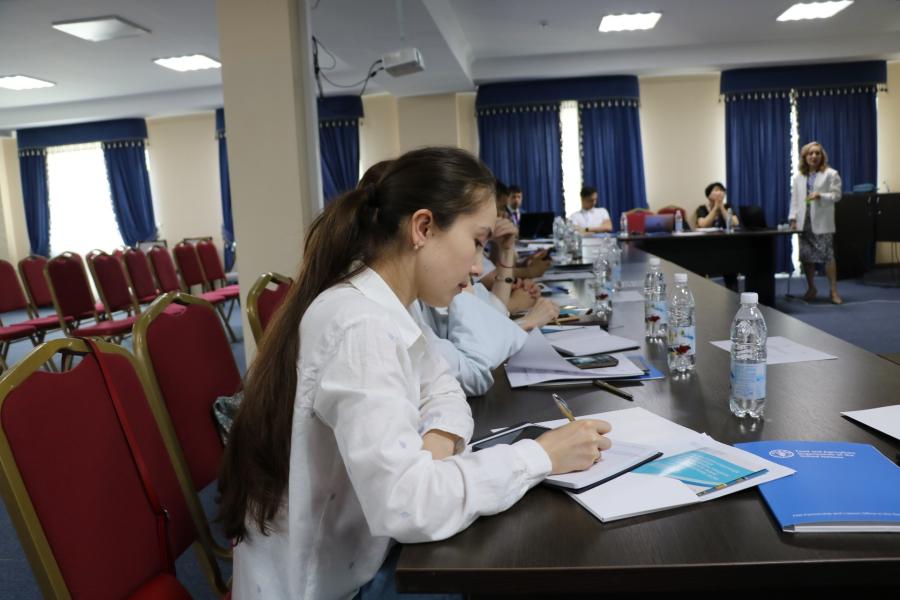FAO conducts a series of trainings to address obsolete pesticides and contaminated soils in Kazakh agriculture
14 June 2023
ASTANA, 9 June 2023 - The Food and Agriculture Organization of the United Nations (FAO) held a series of 3-day training programs in Shymkent, Atyrau and Almaty to address the challenge of obsolete pesticides in Kazakhstan.

The trainings aimed to equip about 90 participants, including national and regional authorities, inventory teams, and relevant stakeholders, with the knowledge and tools to establish a national inventory of obsolete pesticides and develop effective management and disposal strategies based on the inventory data.
The workshops were organized as part of of the FAO project “Lifecycle Management of Pesticides and Disposal of POPs Pesticides in Central Asian countries and Türkiye” funded by the Global Environment Facility (GEF).
Kazakhstan, with its vast arable land covering over 21 million hectares, faces important challenges from the remnants of Soviet-era obsolete pesticides and soil contamination from persistent organic pollutants (POPs). The improper management and disposal of these chemicals pose serious risks to human health and the environment. Today, data on the location, type and amount of obsolete pesticides at the country’s 727 pesticide stores is lacking. Also, it must be assumed that there are many additional sites, where pesticides have been buried without proper environmental safeguards.
To address this issue, FAO has developed two methodologies. The first method is appropriate for obsolete pesticides in the packaging in stores, while the second, known as Rapid Environmental Assessment (REA), evaluates potentially contaminated sites. Both methodologies provide the information to assess risks to the environment and health and prioritise risk management measures.
The 3-day training programs conducted by FAO aimed to enhance the knowledge and skills of inventory teams and among national and regional governmental authorities. The training covered various topics such as planning the inventory process, risks from obsolete pesticides and health protection measures for the inventory teams, data collection, data processing and storage.
During the training, participants visited former pesticide stores, applying the two methodologies and collecting soil samples for chemical analysis. The participating agencies from four regions (Turkestan, Atyrau, West Kazakhstan and Almaty regions) developed work plans and committed to providing administrative and technical support throughout the inventory process.
The training programs received positive responses from local executive state bodies, Kazakhstan’s Ministry of Ecology and Natural Resources, the Ministry of Health, the Ministry of Agriculture and several NGOs. Their active participation ensured the success of the training programs and highlighted the collective commitment to addressing the pressing issues related to obsolete pesticides and contaminated soils in Kazakhstan.
FAO will conduct additional trainings in other regions of Kazakhstan, with inventory work scheduled for 2023. By the end of this year, data from the country as a whole will be gathered. Based on that, FAO anticipates a significant improvement in the understanding and management of obsolete pesticides and contaminated soils in Kazakhstan.
The establishment of a national inventory will provide a solid foundation for developing effective strategies and undertaking practical work to mitigate the risks associated with these hazardous substances. FAO remains dedicated to supporting Kazakhstan in its ensuring a safe and sustainable agricultural sector for the present and future generations.





